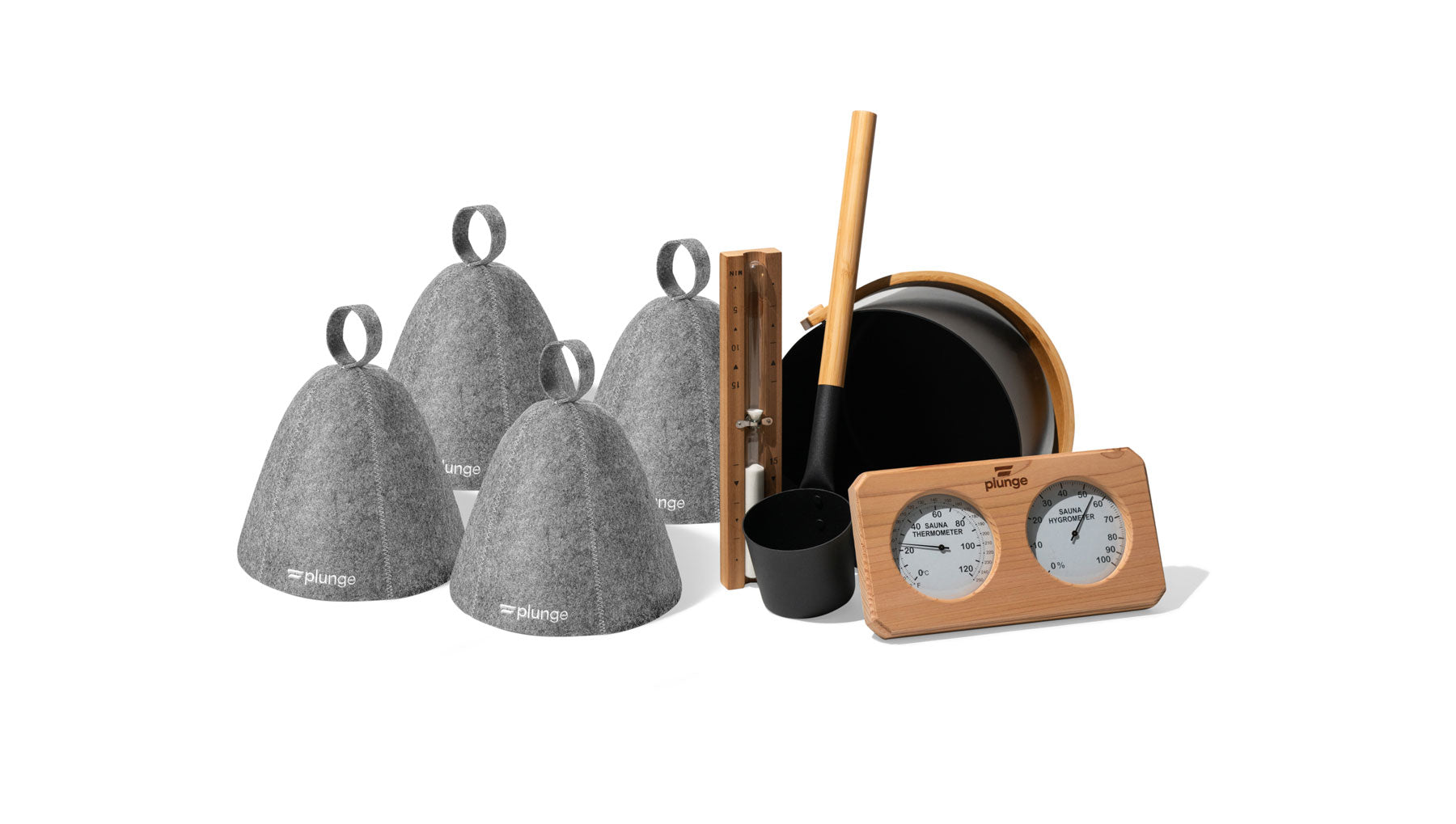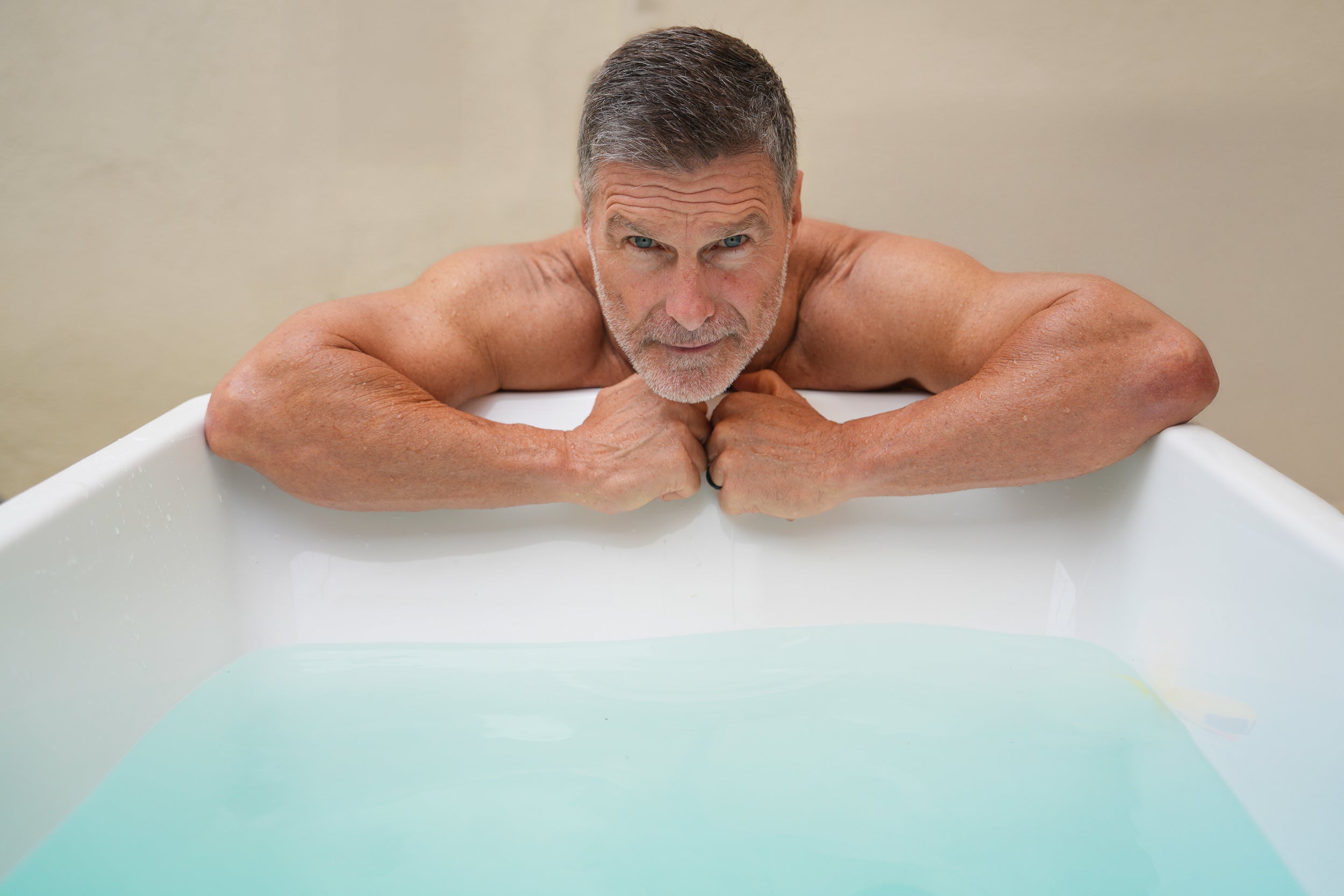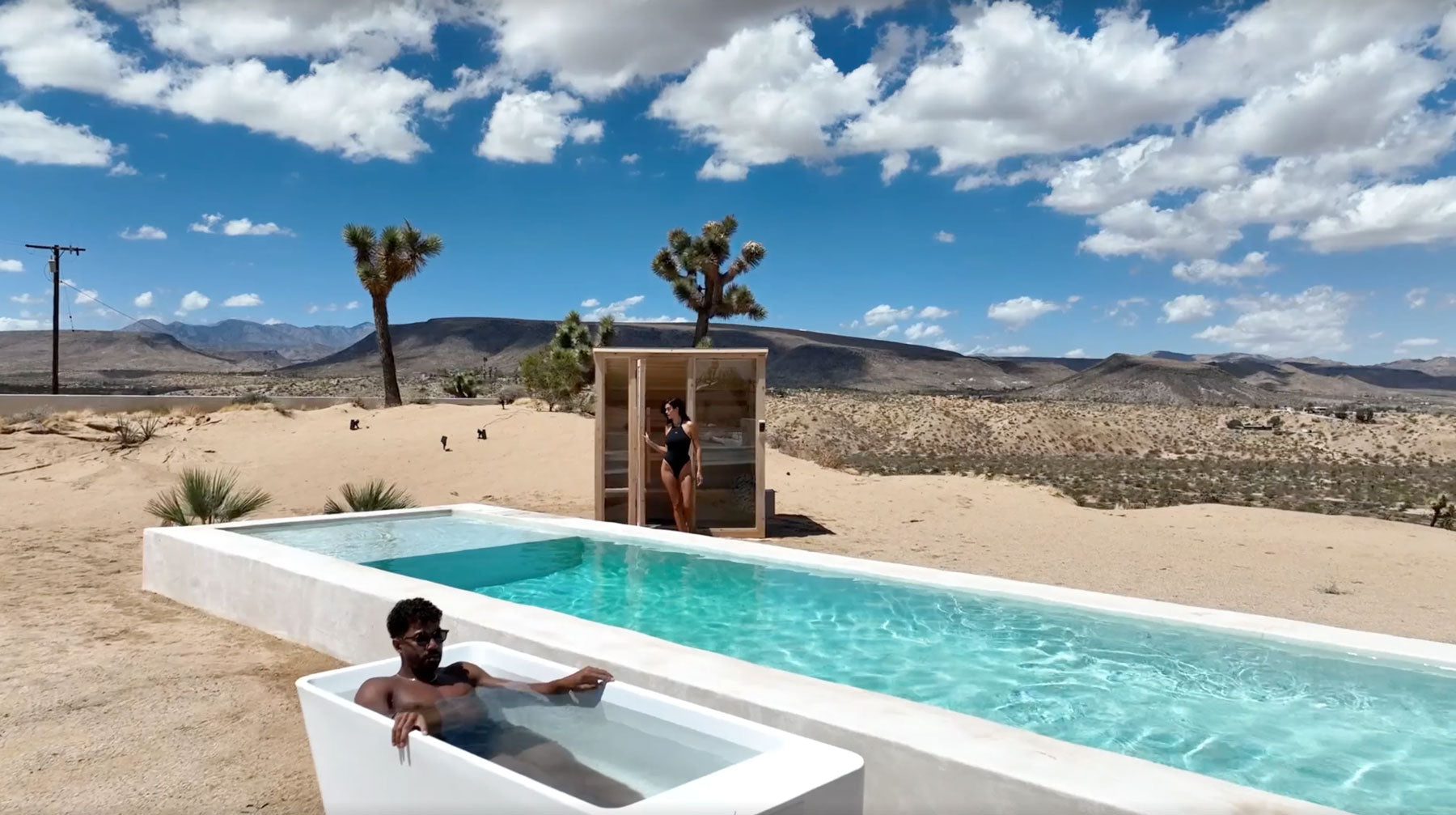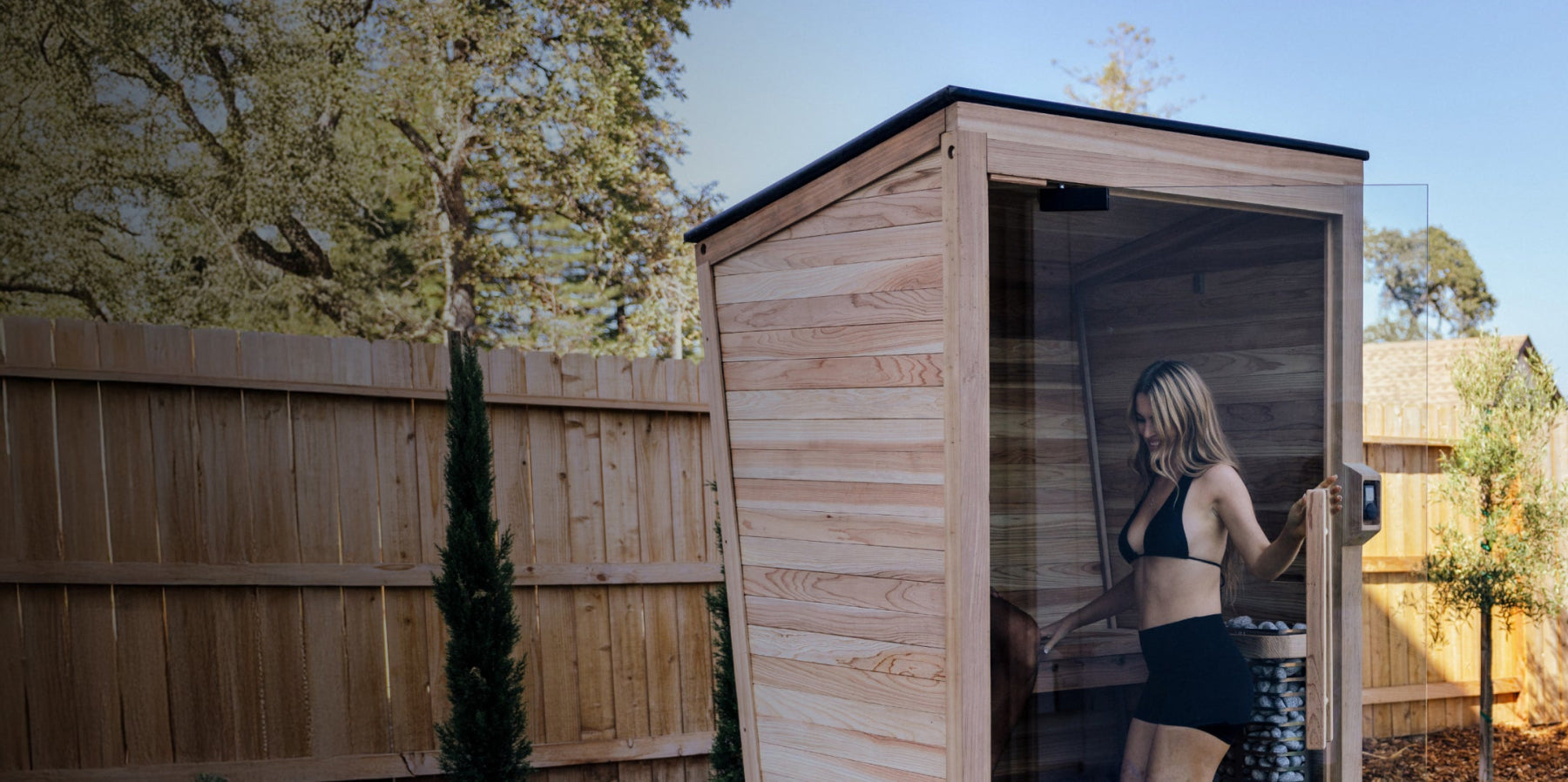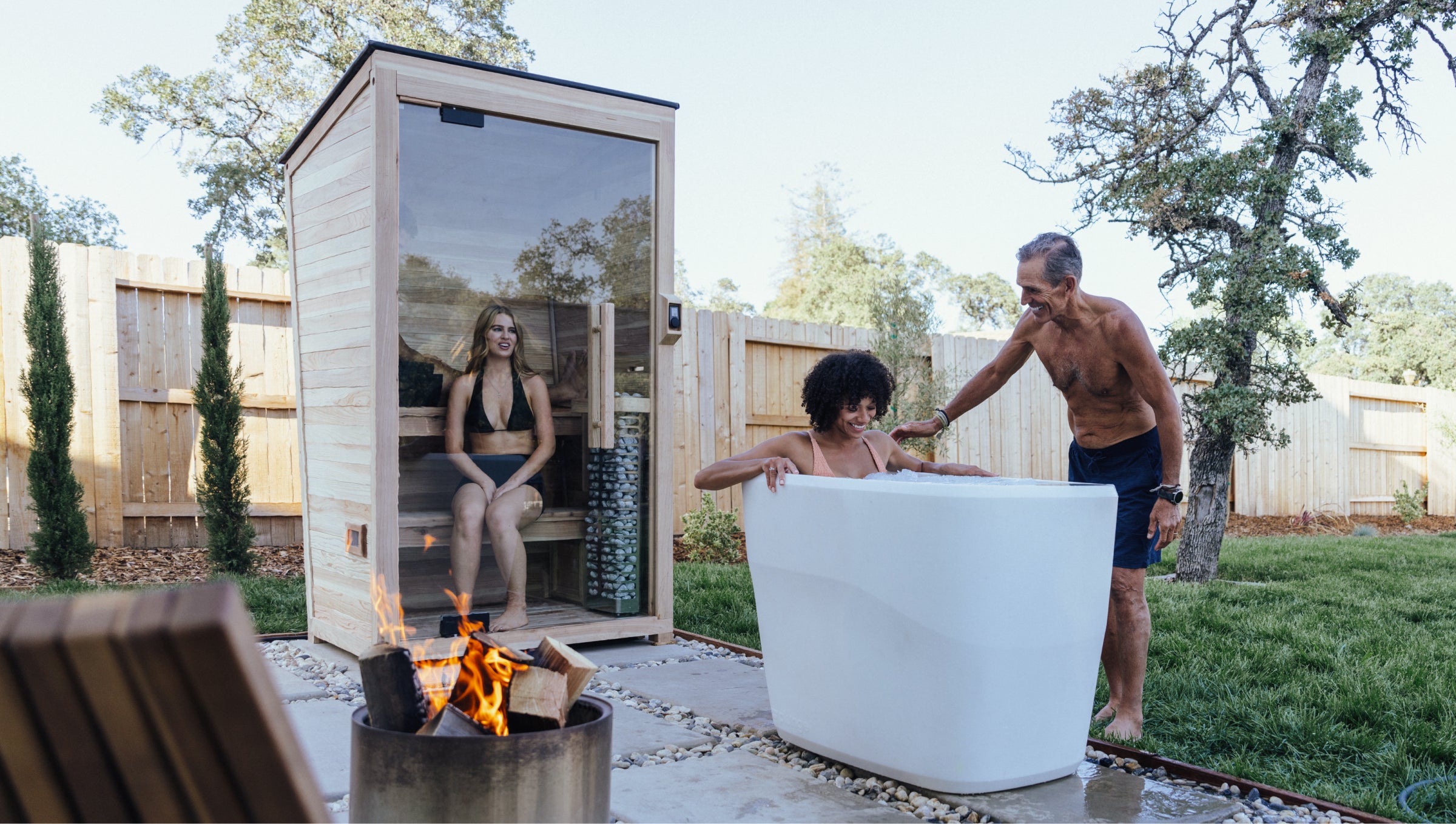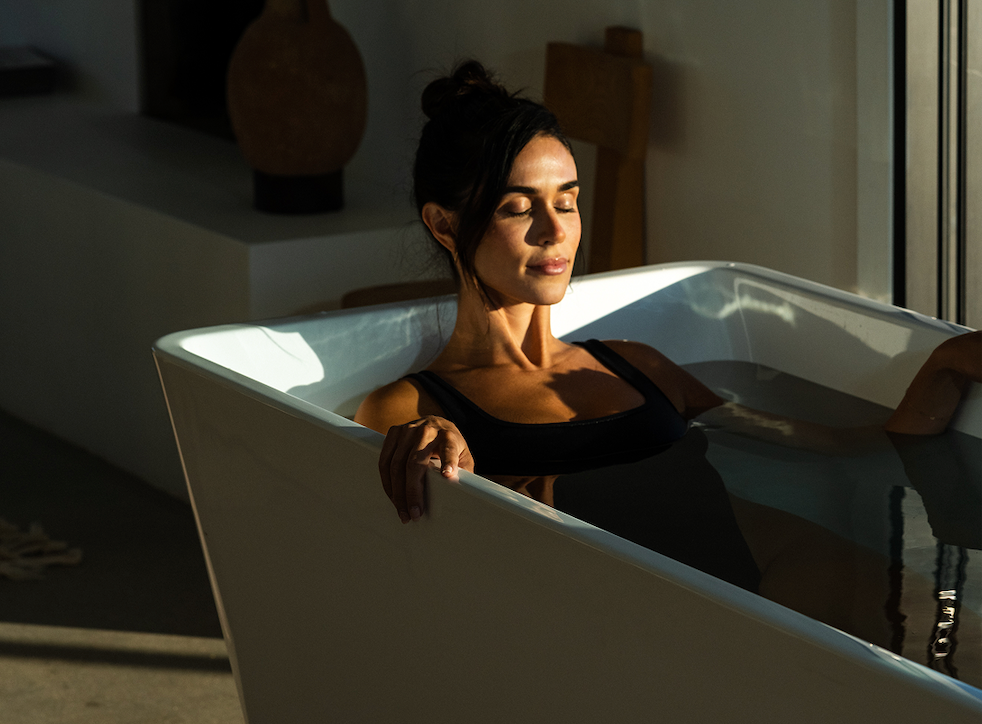
Ice Bath Before Bed: Does it Help Sleep?
Many people love taking a hot shower before bed because it’s relaxing. But what about cold plunging before bed? In general, we know that cold plunging has tremendous health benefits, but how do they align with your bedtime routine? Let’s look at a few pros and cons of cold therapy before bed as it relates to your quality of sleep.
Relaxing Benefits of Ice Baths
Cold plunging does actually have a number of soothing long-term benefits despite the initial shock of entering the water. The primary effects cited when discussing how it may help sleep are:
Lowered Body Temperature
When you take a cold shower or spend a few minutes in your cold plunge, your body’s temperature will dramatically decrease. As a result, your body will release chemicals (such as melatonin) that researchers believe induces sleep. This happens because melatonin only responds to sharp decreases in your core body temperature — and is why some believe that cold therapy before bed might be useful.
Soothes Inflammation
Cold therapy, like ice baths and cold showers, also reduces inflammation by triggering vasoconstriction and diminishing blood flow to inflamed areas. This anti-inflammatory effect works by reducing blood flow to inflamed areas. While it may not dramatically enhance sleep quality, the anti-inflammatory effect can contribute to physical relaxation, potentially easing discomfort and promoting a more restful sleep environment.
Why Ice Baths Before Bed Probably Won’t Help You Sleep
On the other hand, there are other effects that counteract these relaxing factors — which means that cold plunging right before bed typically disrupts and hinders sleep quality. Here’s why:
Cold Therapy Usually Increases Alertness
The last thing you want before bed is a rush of alertness. Cold therapy may cause a spike in your survival hormones: cortisol and norepinephrine. These are also stress hormones, which our bodies use to increase alertness and boost energy. While cold plunging often has long-term benefits on stress, the short-term biological reaction our bodies have to the frigid water is called hormetic stress, which temporarily boosts norepinephrine production.
Cold Isn’t Exactly Relaxing
Because of this, cold therapy before bed isn’t relaxing. There, we said it. Although feeling your body warm up after a cold shower can create feelings of relaxation (and even euphoria), the initial cold can be highly stressful if you’ve not conditioned yourself to cold water. Over time, this process is genuinely beneficial in developing higher stress tolerance — but the short-term effects of taking an ice bath often make it difficult to relax into deep sleep immediately after.
Tips For Cold Therapy & Sleep
The good news is that cold therapy does have a place in improving sleep via natural functions like your circadian rhythm. Your circadian rhythm is calibrated every day by factors like direct sunlight, the sympathetic nervous system, and more. We recommend cold plunging in the morning to wake your body up, which kicks the sympathetic nervous system into gear and synchronizes your circadian rhythm’s “start” phase.
Anecdotal evidence indicates that this more sudden and clear start to your day may make it easier to wind down and rest at the end of the day.
Timing
As we just mentioned, cold plunging in the morning might be an indirect way to improve sleep quality and synchronize your circadian rhythm. If this isn’t realistic for your routine, try to keep cold therapy at least 1-2 hours before bed. This will prevent some of the short-term energizing effects from making it difficult to fall asleep.
If you go to bed straight after a cold shower, your body’s thermostat is unlikely to be at the core temperature ideal for sleep. Waiting 1-2 hours means that your body’s temperature should be in a great spot for sleep.
Keep Your Bedroom Cold
Once you’ve jumped out of a cold shower, you’ll want to feel warm. That’s normal. However, the best predictor of quality sleep is keeping the room temperature between 60-68°F if possible.
Studies have shown temperatures outside of this range, which are common when you don’t have AC running, can lead people to become restless and energetic. As a result, the quality of their sleep suffers. This goes back to body temperature typically needing to be lower for quality sleep.
Your Cold Plunge or Shower Doesn’t Need To Be Long
If you’ve decided to take a cold shower or cold plunge before bed, you’ll be happy to know it doesn’t need to be long. Just 2 minutes in a cold plunge will decrease your body temperature enough to reap some of the sleep benefits we’ve discussed, as well as all of the other great benefits ice baths provide.
Other Tips to Help Sleep
While cold therapy can help your sleep schedule and quality, it’s not the only solution. Here are some tips to help you feel more refreshed after a night of rest:
- Establish a Consistent Sleep Schedule: Go to bed and wake up at the same time every day, even on weekends. Consistency helps regulate your body's internal clock and circadian rhythm, promoting better sleep.
- Create a Relaxing Bedtime Routine: Develop a calming routine before bedtime, such as reading a book, practicing gentle stretching, or taking a warm bath (or sauna session). This signals to your body that it's time to wind down.
- Optimize Your Sleep Environment: Ensure your bedroom is conducive to sleep. Keep the room dark, quiet, and cool. Invest in a comfortable mattress and pillows that support restful sleep.
- Limit Exposure to Screens: Reduce exposure to screens (phones, tablets, computers) at least an hour before bedtime. The blue light emitted by these devices can interfere with the production of melatonin.
- Watch Your Diet: Avoid heavy meals (which saunas can help detox), caffeine, and nicotine close to bedtime. These can disrupt sleep and make it harder to fall asleep.
- Exercise Regularly: Engage in regular physical activity, but try to finish your workout a few hours before bedtime. Exercise promotes better sleep, but intense activity too close to bedtime may have the opposite effect.
- Manage Stress and Anxiety: Practice relaxation techniques, such as deep breathing, meditation, or progressive muscle relaxation, to manage stress and anxiety that may interfere with sleep.
- Limit Naps: If you need to nap, keep it short (20-30 minutes) and avoid napping late in the day. Long or late-afternoon naps can interfere with nighttime sleep.
- Address Sleep Disorders: If you consistently struggle with sleep, consider consulting a healthcare professional to rule out sleep disorders such as insomnia or sleep apnea.
Better Yet — Try Hot & Cold
While cold therapy can indirectly affect sleep by using it early in the day, there is a more direct connection with heat therapy. Warmth like a hot shower or sauna tells your body that it’s time to wind down and rest (via the parasympathetic nervous system).
This means you can combine techniques like cold plunging in the morning and a sauna session in the evening to get the most out of your wellness and sleep routine. For more information, learn more about the benefits of combining ice baths and saunas here.







